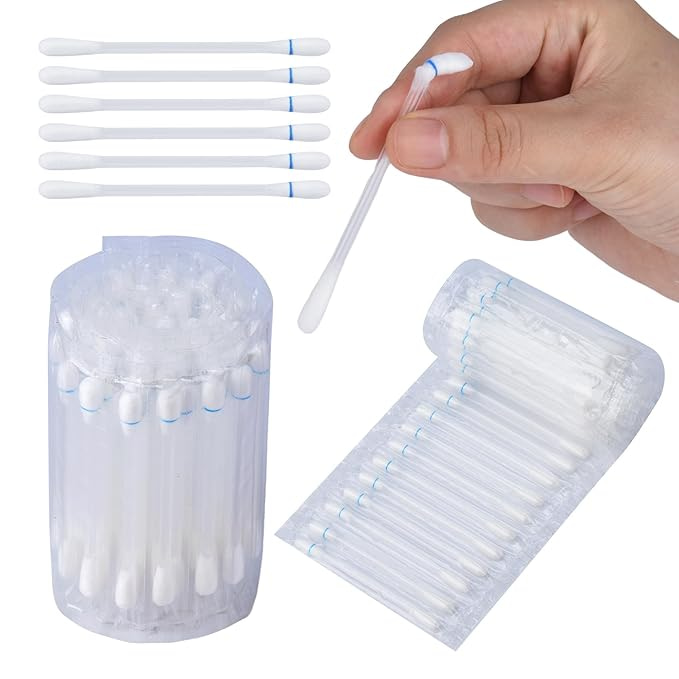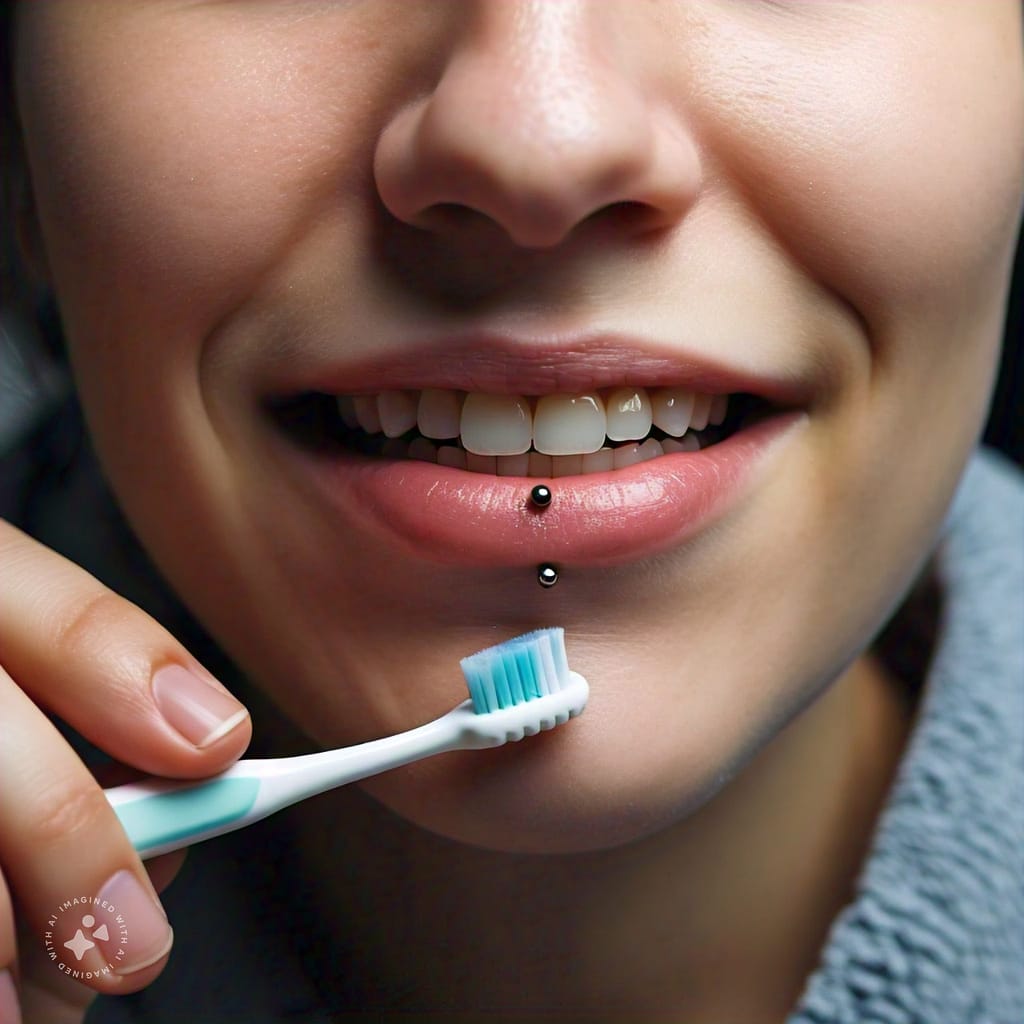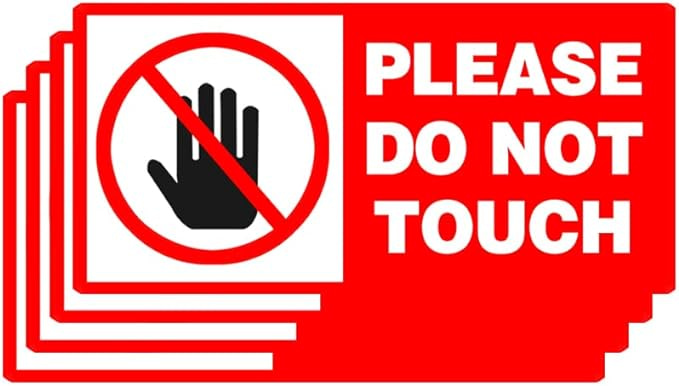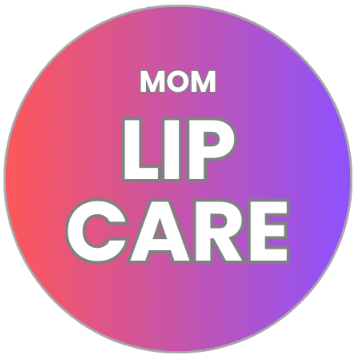How to Take Care of a Lip Piercing: A Comprehensive Guide

Introduction
Lip piercings are a bold way to express personal style, but proper care is essential to ensure healing and avoid complications. Without the right steps, infections, swelling, and discomfort might occur. This guide provides straightforward tips to help you care for your new lip piercing effectively.
1. Clean the Piercing Twice Daily
Keeping the lip piercing clean prevents bacteria buildup. A saline solution is often recommended. Using a cotton swab or clean gauze soaked in the solution, gently dab around the piercing site. Avoid using harsh cleansers, as they may cause irritation. Remember, excessive cleaning may also cause dryness.

NeilMed NeilCleanse Piercing Aftercare, Fine Mist, 6.3 Fluid Ounce
2. Avoid Touching the Piercing with Unwashed Hands
Hands often carry germs that can lead to infections. Touching the piercing without washing your hands transfers these germs directly to the wound. When adjusting the jewelry or cleaning the piercing, wash your hands thoroughly with an antibacterial soap.
3. Opt for a Soft, Non-Irritating Toothbrush
A soft-bristled toothbrush should be chosen to avoid irritating the piercing area. Change the toothbrush regularly to keep it free from bacteria. While brushing, be gentle around the piercing and avoid any harsh movements that could cause discomfort.

Oral-B Gum Care Sensitive Toothbrushes, Extra Soft, 2 Count
4. Stay Away from Alcohol and Smoking
Alcohol and smoking can irritate a fresh piercing and prolong the healing process. Alcohol can dry out the piercing, while smoking introduces harmful bacteria. If avoiding smoking is difficult, reducing the frequency can still help protect the piercing.
5. Rinse with an Alcohol-Free Mouthwash After Eating
Keeping the mouth clean is critical to prevent infections. Rinsing with an alcohol-free mouthwash after every meal helps remove food particles and bacteria that might be trapped around the piercing. Choose a mouthwash specifically designed for oral piercings.
H2Ocean Healing Rinse Natural Sea Salt Oral Care
6. Avoid Playing with the Piercing
Playing with the jewelry can cause irritation, prolong healing, or even lead to tearing. It’s tempting to fiddle with a new piercing, but minimal contact will help reduce the risk of complications.

7. Choose a Healthy Diet
Foods that are hard, crunchy, or spicy can irritate the piercing and should be avoided during the initial healing period. Opting for soft foods and staying hydrated helps promote healing and minimizes discomfort.
![{"type":"elementor","siteurl":"https://momlipcare.com/wp-json/","elements":[{"id":"8abe21e","elType":"widget","isInner":false,"isLocked":false,"settings":{"content_width":"full","image":{"url":"https://mlmy35blvdfv.i.optimole.com/cb:bfFP.3993a/w:auto/h:auto/q:mauto/f:best/https://momlipcare.com/wp-content/uploads/2024/08/How-to-Take-Care-of-a-Lip-Piercing-4.jpg","id":6601,"size":"","alt":"How to take care of a lip piercing","source":"library"},"image_size":"full","image_custom_dimension":{"width":"","height":""},"caption_source":"none","caption":"","link_to":"none","link":{"url":"","is_external":"","nofollow":"","custom_attributes":""},"open_lightbox":"default","align":"","align_tablet":"","align_mobile":"","width":{"unit":"%","size":"","sizes":[]},"width_tablet":{"unit":"%","size":"","sizes":[]},"width_mobile":{"unit":"%","size":"","sizes":[]},"space":{"unit":"%","size":"","sizes":[]},"space_tablet":{"unit":"%","size":"","sizes":[]},"space_mobile":{"unit":"%","size":"","sizes":[]},"height":{"unit":"px","size":"","sizes":[]},"height_tablet":{"unit":"px","size":"","sizes":[]},"height_mobile":{"unit":"px","size":"","sizes":[]},"object-fit":"","object-fit_tablet":"","object-fit_mobile":"","object-position":"center center","object-position_tablet":"","object-position_mobile":"","opacity":{"unit":"px","size":"","sizes":[]},"css_filters_css_filter":"","css_filters_blur":{"unit":"px","size":0,"sizes":[]},"css_filters_brightness":{"unit":"px","size":100,"sizes":[]},"css_filters_contrast":{"unit":"px","size":100,"sizes":[]},"css_filters_saturate":{"unit":"px","size":100,"sizes":[]},"css_filters_hue":{"unit":"px","size":0,"sizes":[]},"opacity_hover":{"unit":"px","size":"","sizes":[]},"css_filters_hover_css_filter":"","css_filters_hover_blur":{"unit":"px","size":0,"sizes":[]},"css_filters_hover_brightness":{"unit":"px","size":100,"sizes":[]},"css_filters_hover_contrast":{"unit":"px","size":100,"sizes":[]},"css_filters_hover_saturate":{"unit":"px","size":100,"sizes":[]},"css_filters_hover_hue":{"unit":"px","size":0,"sizes":[]},"background_hover_transition":{"unit":"px","size":"","sizes":[]},"hover_animation":"","image_border_border":"","image_border_width":{"unit":"px","top":"","right":"","bottom":"","left":"","isLinked":true},"image_border_width_tablet":{"unit":"px","top":"","right":"","bottom":"","left":"","isLinked":true},"image_border_width_mobile":{"unit":"px","top":"","right":"","bottom":"","left":"","isLinked":true},"image_border_color":"","image_border_radius":{"unit":"px","top":"22","right":"22","bottom":"22","left":"22","isLinked":true},"image_border_radius_tablet":{"unit":"px","top":"","right":"","bottom":"","left":"","isLinked":true},"image_border_radius_mobile":{"unit":"px","top":"","right":"","bottom":"","left":"","isLinked":true},"image_box_shadow_box_shadow_type":"yes","image_box_shadow_box_shadow":{"horizontal":0,"vertical":0,"blur":10,"spread":0,"color":"rgba(0,0,0,0.5)"},"caption_align":"","caption_align_tablet":"","caption_align_mobile":"","text_color":"","caption_background_color":"","caption_typography_typography":"","caption_typography_font_family":"","caption_typography_font_size":{"unit":"px","size":"","sizes":[]},"caption_typography_font_size_tablet":{"unit":"px","size":"","sizes":[]},"caption_typography_font_size_mobile":{"unit":"px","size":"","sizes":[]},"caption_typography_font_weight":"","caption_typography_text_transform":"","caption_typography_font_style":"","caption_typography_text_decoration":"","caption_typography_line_height":{"unit":"px","size":"","sizes":[]},"caption_typography_line_height_tablet":{"unit":"em","size":"","sizes":[]},"caption_typography_line_height_mobile":{"unit":"em","size":"","sizes":[]},"caption_typography_letter_spacing":{"unit":"px","size":"","sizes":[]},"caption_typography_letter_spacing_tablet":{"unit":"px","size":"","sizes":[]},"caption_typography_letter_spacing_mobile":{"unit":"px","size":"","sizes":[]},"caption_typography_word_spacing":{"unit":"px","size":"","sizes":[]},"caption_typography_word_spacing_tablet":{"unit":"em","size":"","sizes":[]},"caption_typography_word_spacing_mobile":{"unit":"em","size":"","sizes":[]},"caption_text_shadow_text_shadow_type":"","caption_text_shadow_text_shadow":{"horizontal":0,"vertical":0,"blur":10,"color":"rgba(0,0,0,0.3)"},"caption_space":{"unit":"px","size":"","sizes":[]},"caption_space_tablet":{"unit":"px","size":"","sizes":[]},"caption_space_mobile":{"unit":"px","size":"","sizes":[]},"_title":"","_margin":{"unit":"px","top":"","right":"","bottom":"","left":"","isLinked":true},"_margin_tablet":{"unit":"px","top":"","right":"","bottom":"","left":"","isLinked":true},"_margin_mobile":{"unit":"px","top":"","right":"","bottom":"","left":"","isLinked":true},"_padding":{"unit":"px","top":"","right":"","bottom":"","left":"","isLinked":true},"_padding_tablet":{"unit":"px","top":"","right":"","bottom":"","left":"","isLinked":true},"_padding_mobile":{"unit":"px","top":"","right":"","bottom":"","left":"","isLinked":true},"_element_width":"","_element_width_tablet":"","_element_width_mobile":"","_element_custom_width":{"unit":"%","size":"","sizes":[]},"_element_custom_width_tablet":{"unit":"px","size":"","sizes":[]},"_element_custom_width_mobile":{"unit":"px","size":"","sizes":[]},"_flex_align_self":"","_flex_align_self_tablet":"","_flex_align_self_mobile":"","_flex_order":"","_flex_order_tablet":"","_flex_order_mobile":"","_flex_order_custom":"","_flex_order_custom_tablet":"","_flex_order_custom_mobile":"","_flex_size":"","_flex_size_tablet":"","_flex_size_mobile":"","_flex_grow":1,"_flex_grow_tablet":"","_flex_grow_mobile":"","_flex_shrink":1,"_flex_shrink_tablet":"","_flex_shrink_mobile":"","_element_vertical_align":"","_element_vertical_align_tablet":"","_element_vertical_align_mobile":"","_position":"","_offset_orientation_h":"start","_offset_x":{"unit":"px","size":0,"sizes":[]},"_offset_x_tablet":{"unit":"px","size":"","sizes":[]},"_offset_x_mobile":{"unit":"px","size":"","sizes":[]},"_offset_x_end":{"unit":"px","size":0,"sizes":[]},"_offset_x_end_tablet":{"unit":"px","size":"","sizes":[]},"_offset_x_end_mobile":{"unit":"px","size":"","sizes":[]},"_offset_orientation_v":"start","_offset_y":{"unit":"px","size":0,"sizes":[]},"_offset_y_tablet":{"unit":"px","size":"","sizes":[]},"_offset_y_mobile":{"unit":"px","size":"","sizes":[]},"_offset_y_end":{"unit":"px","size":0,"sizes":[]},"_offset_y_end_tablet":{"unit":"px","size":"","sizes":[]},"_offset_y_end_mobile":{"unit":"px","size":"","sizes":[]},"_z_index":"","_z_index_tablet":"","_z_index_mobile":"","_element_id":"","_css_classes":"","e_display_conditions":"","eael_wrapper_link_switch":"","eael_wrapper_link":{"url":"","is_external":"","nofollow":"","custom_attributes":""},"eael_hover_effect_switch":"","eael_hover_effect_enable_live_changes":"","eael_hover_effect_opacity_popover":"","eael_hover_effect_opacity":{"unit":"px","size":0.8,"sizes":[]},"eael_hover_effect_filter_popover":"","eael_hover_effect_blur_is_on":"","eael_hover_effect_blur":{"unit":"px","size":1,"sizes":[]},"eael_hover_effect_contrast_is_on":"","eael_hover_effect_contrast":{"unit":"px","size":80,"sizes":[]},"eael_hover_effect_grayscale_is_on":"","eael_hover_effect_grayscal":{"unit":"px","size":40,"sizes":[]},"eael_hover_effect_invert_is_on":"","eael_hover_effect_invert":{"unit":"px","size":70,"sizes":[]},"eael_hover_effect_saturate_is_on":"","eael_hover_effect_saturate":{"unit":"px","size":50,"sizes":[]},"eael_hover_effect_sepia_is_on":"","eael_hover_effect_sepia":{"unit":"px","size":50,"sizes":[]},"eael_hover_effect_offset_popover":"","eael_hover_effect_offset_left":{"unit":"px","size":5,"sizes":[]},"eael_hover_effect_offset_left_tablet":{"unit":"px","size":"","sizes":[]},"eael_hover_effect_offset_left_mobile":{"unit":"px","size":"","sizes":[]},"eael_hover_effect_offset_top":{"unit":"px","size":5,"sizes":[]},"eael_hover_effect_offset_top_tablet":{"unit":"px","size":"","sizes":[]},"eael_hover_effect_offset_top_mobile":{"unit":"px","size":"","sizes":[]},"eael_hover_effect_transform_popover":"","eael_hover_effect_rotate_is_on":"","eael_hover_effect_transform_rotatex":{"unit":"px","size":0,"sizes":[]},"eael_hover_effect_transform_rotatex_tablet":{"unit":"px","size":"","sizes":[]},"eael_hover_effect_transform_rotatex_mobile":{"unit":"px","size":"","sizes":[]},"eael_hover_effect_transform_rotatey":{"unit":"px","size":0,"sizes":[]},"eael_hover_effect_transform_rotatey_tablet":{"unit":"px","size":"","sizes":[]},"eael_hover_effect_transform_rotatey_mobile":{"unit":"px","size":"","sizes":[]},"eael_hover_effect_transform_rotatez":{"unit":"px","size":5,"sizes":[]},"eael_hover_effect_transform_rotatez_tablet":{"unit":"px","size":"","sizes":[]},"eael_hover_effect_transform_rotatez_mobile":{"unit":"px","size":"","sizes":[]},"eael_hover_effect_scale_is_on":"","eael_hover_effect_transform_scalex":{"unit":"px","size":0.9,"sizes":[]},"eael_hover_effect_transform_scalex_tablet":{"unit":"px","size":"","sizes":[]},"eael_hover_effect_transform_scalex_mobile":{"unit":"px","size":"","sizes":[]},"eael_hover_effect_transform_scaley":{"unit":"px","size":0.9,"sizes":[]},"eael_hover_effect_transform_scaley_tablet":{"unit":"px","size":"","sizes":[]},"eael_hover_effect_transform_scaley_mobile":{"unit":"px","size":"","sizes":[]},"eael_hover_effect_skew_is_on":"","eael_hover_effect_transform_skewx":{"unit":"px","size":5,"sizes":[]},"eael_hover_effect_transform_skewx_tablet":{"unit":"px","size":"","sizes":[]},"eael_hover_effect_transform_skewx_mobile":{"unit":"px","size":"","sizes":[]},"eael_hover_effect_transform_skewy":{"unit":"px","size":5,"sizes":[]},"eael_hover_effect_transform_skewy_tablet":{"unit":"px","size":"","sizes":[]},"eael_hover_effect_transform_skewy_mobile":{"unit":"px","size":"","sizes":[]},"eael_hover_effect_general_settings_duration":{"unit":"px","size":1000,"sizes":[]},"eael_hover_effect_general_settings_delay":{"unit":"px","size":"","sizes":[]},"eael_hover_effect_general_settings_easing":"ease","eael_hover_effect_opacity_popover_hover":"","eael_hover_effect_opacity_hover":{"unit":"px","size":1,"sizes":[]},"eael_hover_effect_filter_hover_popover":"","eael_hover_effect_blur_hover_is_on":"","eael_hover_effect_blur_hover":{"unit":"px","size":0,"sizes":[]},"eael_hover_effect_contrast_hover_is_on":"","eael_hover_effect_contrast_hover":{"unit":"%","size":100,"sizes":[]},"eael_hover_effect_grayscale_hover_is_on":"","eael_hover_effect_grayscal_hover":{"unit":"%","size":0,"sizes":[]},"eael_hover_effect_invert_hover_is_on":"","eael_hover_effect_invert_hover":{"unit":"%","size":0,"sizes":[]},"eael_hover_effect_saturate_hover_is_on":"","eael_hover_effect_saturate_hover":{"unit":"%","size":100,"sizes":[]},"eael_hover_effect_sepia_hover_is_on":"","eael_hover_effect_sepia_hover":{"unit":"px","size":1,"sizes":[]},"eael_hover_effect_offset_hover_popover":"","eael_hover_effect_offset_hover_left":{"unit":"px","size":0,"sizes":[]},"eael_hover_effect_offset_hover_left_tablet":{"unit":"px","size":"","sizes":[]},"eael_hover_effect_offset_hover_left_mobile":{"unit":"px","size":"","sizes":[]},"eael_hover_effect_offset_hover_top":{"unit":"px","size":0,"sizes":[]},"eael_hover_effect_offset_hover_top_tablet":{"unit":"px","size":"","sizes":[]},"eael_hover_effect_offset_hover_top_mobile":{"unit":"px","size":"","sizes":[]},"eael_hover_effect_transform_hover_popover":"","eael_hover_effect_rotate_hover_is_on":"","eael_hover_effect_transform_hover_rotatex":{"unit":"px","size":0,"sizes":[]},"eael_hover_effect_transform_hover_rotatex_tablet":{"unit":"px","size":"","sizes":[]},"eael_hover_effect_transform_hover_rotatex_mobile":{"unit":"px","size":"","sizes":[]},"eael_hover_effect_transform_hover_rotatey":{"unit":"px","size":0,"sizes":[]},"eael_hover_effect_transform_hover_rotatey_tablet":{"unit":"px","size":"","sizes":[]},"eael_hover_effect_transform_hover_rotatey_mobile":{"unit":"px","size":"","sizes":[]},"eael_hover_effect_transform_hover_rotatez":{"unit":"px","size":0,"sizes":[]},"eael_hover_effect_transform_hover_rotatez_tablet":{"unit":"px","size":"","sizes":[]},"eael_hover_effect_transform_hover_rotatez_mobile":{"unit":"px","size":"","sizes":[]},"eael_hover_effect_scale_hover_is_on":"","eael_hover_effect_transform_hover_scalex":{"unit":"px","size":1,"sizes":[]},"eael_hover_effect_transform_hover_scalex_tablet":{"unit":"px","size":"","sizes":[]},"eael_hover_effect_transform_hover_scalex_mobile":{"unit":"px","size":"","sizes":[]},"eael_hover_effect_transform_hover_scaley":{"unit":"px","size":0,"sizes":[]},"eael_hover_effect_transform_hover_scaley_tablet":{"unit":"px","size":"","sizes":[]},"eael_hover_effect_transform_hover_scaley_mobile":{"unit":"px","size":"","sizes":[]},"eael_hover_effect_skew_hover_is_on":"","eael_hover_effect_transform_hover_skewx":{"unit":"px","size":0,"sizes":[]},"eael_hover_effect_transform_hover_skewx_tablet":{"unit":"px","size":"","sizes":[]},"eael_hover_effect_transform_hover_skewx_mobile":{"unit":"px","size":"","sizes":[]},"eael_hover_effect_transform_hover_skewy":{"unit":"px","size":0,"sizes":[]},"eael_hover_effect_transform_hover_skewy_tablet":{"unit":"px","size":"","sizes":[]},"eael_hover_effect_transform_hover_skewy_mobile":{"unit":"px","size":"","sizes":[]},"eael_hover_effect_general_settings_hover_duration":{"unit":"px","size":1000,"sizes":[]},"eael_hover_effect_general_settings_hover_delay":{"unit":"px","size":"","sizes":[]},"eael_hover_effect_general_settings_hover_easing":"ease","eael_hover_effect_hover_tilt":"","pa_display_conditions_switcher":"","pa_display_action":"show","pa_display_when":"any","pa_condition_repeater":[],"premium_fe_switcher":"","premium_fe_target":"","premium_fe_translate_switcher":"","premium_fe_Xtranslate":{"unit":"px","size":"","sizes":{"from":0,"to":5}},"premium_fe_Xtranslate_tablet":{"unit":"px","size":"","sizes":[]},"premium_fe_Xtranslate_mobile":{"unit":"px","size":"","sizes":[]},"premium_fe_Ytranslate":{"unit":"px","size":"","sizes":{"from":0,"to":5}},"premium_fe_Ytranslate_tablet":{"unit":"px","size":"","sizes":[]},"premium_fe_Ytranslate_mobile":{"unit":"px","size":"","sizes":[]},"premium_fe_trans_duration":{"unit":"px","size":1000,"sizes":[]},"premium_fe_trans_delay":{"unit":"px","size":"","sizes":[]},"premium_fe_rotate_switcher":"","premium_fe_Xrotate":{"unit":"deg","size":"","sizes":{"from":0,"to":45}},"premium_fe_Xrotate_tablet":{"unit":"px","size":"","sizes":[]},"premium_fe_Xrotate_mobile":{"unit":"px","size":"","sizes":[]},"premium_fe_Yrotate":{"unit":"deg","size":"","sizes":{"from":0,"to":45}},"premium_fe_Yrotate_tablet":{"unit":"px","size":"","sizes":[]},"premium_fe_Yrotate_mobile":{"unit":"px","size":"","sizes":[]},"premium_fe_Zrotate":{"unit":"deg","size":"","sizes":{"from":0,"to":45}},"premium_fe_Zrotate_tablet":{"unit":"px","size":"","sizes":[]},"premium_fe_Zrotate_mobile":{"unit":"px","size":"","sizes":[]},"premium_fe_rotate_duration":{"unit":"px","size":1000,"sizes":[]},"premium_fe_rotate_delay":{"unit":"px","size":"","sizes":[]},"premium_fe_scale_switcher":"","premium_fe_Xscale":{"unit":"px","size":"","sizes":{"from":1,"to":1.2}},"premium_fe_Xscale_tablet":{"unit":"px","size":"","sizes":[]},"premium_fe_Xscale_mobile":{"unit":"px","size":"","sizes":[]},"premium_fe_Yscale":{"unit":"px","size":"","sizes":{"from":1,"to":1.2}},"premium_fe_Yscale_tablet":{"unit":"px","size":"","sizes":[]},"premium_fe_Yscale_mobile":{"unit":"px","size":"","sizes":[]},"premium_fe_scale_duration":{"unit":"px","size":1000,"sizes":[]},"premium_fe_scale_delay":{"unit":"px","size":"","sizes":[]},"premium_fe_skew_switcher":"","premium_fe_Xskew":{"unit":"deg","size":"","sizes":{"from":0,"to":20}},"premium_fe_Xskew_tablet":{"unit":"px","size":"","sizes":[]},"premium_fe_Xskew_mobile":{"unit":"px","size":"","sizes":[]},"premium_fe_Yskew":{"unit":"deg","size":"","sizes":{"from":0,"to":20}},"premium_fe_Yskew_tablet":{"unit":"px","size":"","sizes":[]},"premium_fe_Yskew_mobile":{"unit":"px","size":"","sizes":[]},"premium_fe_skew_duration":{"unit":"px","size":1000,"sizes":[]},"premium_fe_skew_delay":{"unit":"px","size":"","sizes":[]},"premium_fe_opacity_switcher":"","premium_fe_bg_color_switcher":"","premium_fe_blur_switcher":"","premium_fe_contrast_switcher":"","premium_fe_gScale_switcher":"","premium_fe_hue_switcher":"","premium_fe_brightness_switcher":"","premium_fe_saturate_switcher":"","premium_fe_direction":"alternate","premium_fe_loop":"default","premium_fe_loop_number":3,"premium_fe_easing":"easeInOutSine","premium_fe_ease_step":5,"premium_fe_disable_safari":"","premium_tooltip_switcher":"","pa_tooltip_target":"","premium_tooltip_type":"text","premium_tooltip_text":"Hi, I'm a global tooltip.","premium_tooltip_icon_switcher":"","premium_tooltip_icon":{"value":"fas fa-star","library":"fa-solid"},"premium_tooltip_lottie_url":"","premium_tooltip_lottie_loop":"true","premium_tooltip_lottie_reverse":"","hide_tooltip_on":[],"premium_tooltip_text_color":"","premium_tooltip_text_typo_typography":"","premium_tooltip_text_typo_font_family":"","premium_tooltip_text_typo_font_size":{"unit":"px","size":"","sizes":[]},"premium_tooltip_text_typo_font_size_tablet":{"unit":"px","size":"","sizes":[]},"premium_tooltip_text_typo_font_size_mobile":{"unit":"px","size":"","sizes":[]},"premium_tooltip_text_typo_font_weight":"","premium_tooltip_text_typo_text_transform":"","premium_tooltip_text_typo_font_style":"","premium_tooltip_text_typo_text_decoration":"","premium_tooltip_text_typo_line_height":{"unit":"px","size":"","sizes":[]},"premium_tooltip_text_typo_line_height_tablet":{"unit":"em","size":"","sizes":[]},"premium_tooltip_text_typo_line_height_mobile":{"unit":"em","size":"","sizes":[]},"premium_tooltip_text_typo_letter_spacing":{"unit":"px","size":"","sizes":[]},"premium_tooltip_text_typo_letter_spacing_tablet":{"unit":"px","size":"","sizes":[]},"premium_tooltip_text_typo_letter_spacing_mobile":{"unit":"px","size":"","sizes":[]},"premium_tooltip_text_typo_word_spacing":{"unit":"px","size":"","sizes":[]},"premium_tooltip_text_typo_word_spacing_tablet":{"unit":"em","size":"","sizes":[]},"premium_tooltip_text_typo_word_spacing_mobile":{"unit":"em","size":"","sizes":[]},"premium_tooltip_text_shadow_text_shadow_type":"","premium_tooltip_text_shadow_text_shadow":{"horizontal":0,"vertical":0,"blur":10,"color":"rgba(0,0,0,0.3)"},"premium_tooltip_icon_color":"","premium_tooltip_icon_size":{"unit":"px","size":"","sizes":[]},"premium_tooltip_icon_size_tablet":{"unit":"px","size":"","sizes":[]},"premium_tooltip_icon_size_mobile":{"unit":"px","size":"","sizes":[]},"premium_tooltip_icon_shadow_text_shadow_type":"","premium_tooltip_icon_shadow_text_shadow":{"horizontal":0,"vertical":0,"blur":10,"color":"rgba(0,0,0,0.3)"},"premium_tooltip_img_size":{"unit":"px","size":100,"sizes":[]},"premium_tooltip_img_size_tablet":{"unit":"px","size":"","sizes":[]},"premium_tooltip_img_size_mobile":{"unit":"px","size":"","sizes":[]},"premium_tooltip_img_fit":"cover","premium_tooltip_img_fit_tablet":"","premium_tooltip_img_fit_mobile":"","premium_tooltip_container_bg_background":"","premium_tooltip_container_bg_color":"","premium_tooltip_container_bg_color_stop":{"unit":"%","size":0,"sizes":[]},"premium_tooltip_container_bg_color_stop_tablet":{"unit":"%"},"premium_tooltip_container_bg_color_stop_mobile":{"unit":"%"},"premium_tooltip_container_bg_color_b":"#f2295b","premium_tooltip_container_bg_color_b_stop":{"unit":"%","size":100,"sizes":[]},"premium_tooltip_container_bg_color_b_stop_tablet":{"unit":"%"},"premium_tooltip_container_bg_color_b_stop_mobile":{"unit":"%"},"premium_tooltip_container_bg_gradient_type":"linear","premium_tooltip_container_bg_gradient_angle":{"unit":"deg","size":180,"sizes":[]},"premium_tooltip_container_bg_gradient_angle_tablet":{"unit":"deg"},"premium_tooltip_container_bg_gradient_angle_mobile":{"unit":"deg"},"premium_tooltip_container_bg_gradient_position":"center center","premium_tooltip_container_bg_gradient_position_tablet":"","premium_tooltip_container_bg_gradient_position_mobile":"","premium_tooltip_container_bg_image":{"url":"","id":"","size":""},"premium_tooltip_container_bg_image_tablet":{"url":"","id":"","size":""},"premium_tooltip_container_bg_image_mobile":{"url":"","id":"","size":""},"premium_tooltip_container_bg_position":"","premium_tooltip_container_bg_position_tablet":"","premium_tooltip_container_bg_position_mobile":"","premium_tooltip_container_bg_xpos":{"unit":"px","size":0,"sizes":[]},"premium_tooltip_container_bg_xpos_tablet":{"unit":"px","size":0,"sizes":[]},"premium_tooltip_container_bg_xpos_mobile":{"unit":"px","size":0,"sizes":[]},"premium_tooltip_container_bg_ypos":{"unit":"px","size":0,"sizes":[]},"premium_tooltip_container_bg_ypos_tablet":{"unit":"px","size":0,"sizes":[]},"premium_tooltip_container_bg_ypos_mobile":{"unit":"px","size":0,"sizes":[]},"premium_tooltip_container_bg_attachment":"","premium_tooltip_container_bg_repeat":"","premium_tooltip_container_bg_repeat_tablet":"","premium_tooltip_container_bg_repeat_mobile":"","premium_tooltip_container_bg_size":"","premium_tooltip_container_bg_size_tablet":"","premium_tooltip_container_bg_size_mobile":"","premium_tooltip_container_bg_bg_width":{"unit":"%","size":100,"sizes":[]},"premium_tooltip_container_bg_bg_width_tablet":{"unit":"px","size":"","sizes":[]},"premium_tooltip_container_bg_bg_width_mobile":{"unit":"px","size":"","sizes":[]},"premium_tooltip_container_bg_video_link":"","premium_tooltip_container_bg_video_start":"","premium_tooltip_container_bg_video_end":"","premium_tooltip_container_bg_play_once":"","premium_tooltip_container_bg_play_on_mobile":"","premium_tooltip_container_bg_privacy_mode":"","premium_tooltip_container_bg_video_fallback":{"url":"","id":"","size":""},"premium_tooltip_container_bg_slideshow_gallery":[],"premium_tooltip_container_bg_slideshow_loop":"yes","premium_tooltip_container_bg_slideshow_slide_duration":5000,"premium_tooltip_container_bg_slideshow_slide_transition":"fade","premium_tooltip_container_bg_slideshow_transition_duration":500,"premium_tooltip_container_bg_slideshow_background_size":"","premium_tooltip_container_bg_slideshow_background_size_tablet":"","premium_tooltip_container_bg_slideshow_background_size_mobile":"","premium_tooltip_container_bg_slideshow_background_position":"","premium_tooltip_container_bg_slideshow_background_position_tablet":"","premium_tooltip_container_bg_slideshow_background_position_mobile":"","premium_tooltip_container_bg_slideshow_lazyload":"","premium_tooltip_container_bg_slideshow_ken_burns":"","premium_tooltip_container_bg_slideshow_ken_burns_zoom_direction":"in","premium_tooltip_container_border_border":"","premium_tooltip_container_border_width":{"unit":"px","top":"","right":"","bottom":"","left":"","isLinked":true},"premium_tooltip_container_border_width_tablet":{"unit":"px","top":"","right":"","bottom":"","left":"","isLinked":true},"premium_tooltip_container_border_width_mobile":{"unit":"px","top":"","right":"","bottom":"","left":"","isLinked":true},"premium_tooltip_container_border_color":"","premium_tooltip_container_border_radius":{"unit":"px","size":"","sizes":[]},"premium_tooltip_container_box_shadow_box_shadow_type":"","premium_tooltip_container_box_shadow_box_shadow":{"horizontal":0,"vertical":0,"blur":10,"spread":0,"color":"rgba(0,0,0,0.5)"},"premium_tooltip_container_box_shadow_box_shadow_position":" ","premium_tooltip_container_padding":{"unit":"px","top":"","right":"","bottom":"","left":"","isLinked":true},"premium_tooltip_container_padding_tablet":{"unit":"px","top":"","right":"","bottom":"","left":"","isLinked":true},"premium_tooltip_container_padding_mobile":{"unit":"px","top":"","right":"","bottom":"","left":"","isLinked":true},"premium_tooltip_arrow_color":"","premium_tooltip_mouse_follow":"","premium_tooltip_interactive":"yes","premium_tooltip_arrow":"","premium_tooltip_trigger":"hover","premium_tooltip_position":"top,bottom","premium_tooltip_distance_position":6,"premium_tooltip_min_width":{"unit":"px","size":"","sizes":[]},"premium_tooltip_min_width_tablet":{"unit":"px","size":"","sizes":[]},"premium_tooltip_min_width_mobile":{"unit":"px","size":"","sizes":[]},"premium_tooltip_max_width":{"unit":"px","size":"","sizes":[]},"premium_tooltip_max_width_tablet":{"unit":"px","size":"","sizes":[]},"premium_tooltip_max_width_mobile":{"unit":"px","size":"","sizes":[]},"premium_tooltip_height":{"unit":"px","size":"","sizes":[]},"premium_tooltip_height_tablet":{"unit":"px","size":"","sizes":[]},"premium_tooltip_height_mobile":{"unit":"px","size":"","sizes":[]},"premium_tooltip_anime":"fade","premium_tooltip_anime_dur":350,"premium_tooltip_delay":10,"pa_tooltip_zindex":"","premium_wrapper_link_selection":"url","premium_wrapper_link":{"url":"","is_external":"","nofollow":"","custom_attributes":""},"premium_wrapper_existing_link":"","motion_fx_motion_fx_scrolling":"","motion_fx_translateY_effect":"","motion_fx_translateY_direction":"","motion_fx_translateY_speed":{"unit":"px","size":4,"sizes":[]},"motion_fx_translateY_affectedRange":{"unit":"%","size":"","sizes":{"start":0,"end":100}},"motion_fx_translateX_effect":"","motion_fx_translateX_direction":"","motion_fx_translateX_speed":{"unit":"px","size":4,"sizes":[]},"motion_fx_translateX_affectedRange":{"unit":"%","size":"","sizes":{"start":0,"end":100}},"motion_fx_opacity_effect":"","motion_fx_opacity_direction":"out-in","motion_fx_opacity_level":{"unit":"px","size":10,"sizes":[]},"motion_fx_opacity_range":{"unit":"%","size":"","sizes":{"start":20,"end":80}},"motion_fx_blur_effect":"","motion_fx_blur_direction":"out-in","motion_fx_blur_level":{"unit":"px","size":7,"sizes":[]},"motion_fx_blur_range":{"unit":"%","size":"","sizes":{"start":20,"end":80}},"motion_fx_rotateZ_effect":"","motion_fx_rotateZ_direction":"","motion_fx_rotateZ_speed":{"unit":"px","size":1,"sizes":[]},"motion_fx_rotateZ_affectedRange":{"unit":"%","size":"","sizes":{"start":0,"end":100}},"motion_fx_scale_effect":"","motion_fx_scale_direction":"out-in","motion_fx_scale_speed":{"unit":"px","size":4,"sizes":[]},"motion_fx_scale_range":{"unit":"%","size":"","sizes":{"start":20,"end":80}},"motion_fx_transform_origin_x":"center","motion_fx_transform_origin_y":"center","motion_fx_devices":["desktop","tablet","mobile"],"motion_fx_range":"","motion_fx_motion_fx_mouse":"","motion_fx_mouseTrack_effect":"","motion_fx_mouseTrack_direction":"","motion_fx_mouseTrack_speed":{"unit":"px","size":1,"sizes":[]},"motion_fx_tilt_effect":"","motion_fx_tilt_direction":"","motion_fx_tilt_speed":{"unit":"px","size":4,"sizes":[]},"sticky":"","sticky_on":["desktop","tablet","mobile"],"sticky_offset":0,"sticky_offset_tablet":"","sticky_offset_mobile":"","sticky_effects_offset":0,"sticky_effects_offset_tablet":"","sticky_effects_offset_mobile":"","sticky_parent":"","_animation":"","_animation_tablet":"","_animation_mobile":"","animation_duration":"","_animation_delay":"","_transform_rotate_popover":"","_transform_rotateZ_effect":{"unit":"px","size":"","sizes":[]},"_transform_rotateZ_effect_tablet":{"unit":"deg","size":"","sizes":[]},"_transform_rotateZ_effect_mobile":{"unit":"deg","size":"","sizes":[]},"_transform_rotate_3d":"","_transform_rotateX_effect":{"unit":"px","size":"","sizes":[]},"_transform_rotateX_effect_tablet":{"unit":"deg","size":"","sizes":[]},"_transform_rotateX_effect_mobile":{"unit":"deg","size":"","sizes":[]},"_transform_rotateY_effect":{"unit":"px","size":"","sizes":[]},"_transform_rotateY_effect_tablet":{"unit":"deg","size":"","sizes":[]},"_transform_rotateY_effect_mobile":{"unit":"deg","size":"","sizes":[]},"_transform_perspective_effect":{"unit":"px","size":"","sizes":[]},"_transform_perspective_effect_tablet":{"unit":"px","size":"","sizes":[]},"_transform_perspective_effect_mobile":{"unit":"px","size":"","sizes":[]},"_transform_translate_popover":"","_transform_translateX_effect":{"unit":"px","size":"","sizes":[]},"_transform_translateX_effect_tablet":{"unit":"px","size":"","sizes":[]},"_transform_translateX_effect_mobile":{"unit":"px","size":"","sizes":[]},"_transform_translateY_effect":{"unit":"px","size":"","sizes":[]},"_transform_translateY_effect_tablet":{"unit":"px","size":"","sizes":[]},"_transform_translateY_effect_mobile":{"unit":"px","size":"","sizes":[]},"_transform_scale_popover":"","_transform_keep_proportions":"yes","_transform_scale_effect":{"unit":"px","size":"","sizes":[]},"_transform_scale_effect_tablet":{"unit":"px","size":"","sizes":[]},"_transform_scale_effect_mobile":{"unit":"px","size":"","sizes":[]},"_transform_scaleX_effect":{"unit":"px","size":"","sizes":[]},"_transform_scaleX_effect_tablet":{"unit":"px","size":"","sizes":[]},"_transform_scaleX_effect_mobile":{"unit":"px","size":"","sizes":[]},"_transform_scaleY_effect":{"unit":"px","size":"","sizes":[]},"_transform_scaleY_effect_tablet":{"unit":"px","size":"","sizes":[]},"_transform_scaleY_effect_mobile":{"unit":"px","size":"","sizes":[]},"_transform_skew_popover":"","_transform_skewX_effect":{"unit":"px","size":"","sizes":[]},"_transform_skewX_effect_tablet":{"unit":"deg","size":"","sizes":[]},"_transform_skewX_effect_mobile":{"unit":"deg","size":"","sizes":[]},"_transform_skewY_effect":{"unit":"px","size":"","sizes":[]},"_transform_skewY_effect_tablet":{"unit":"deg","size":"","sizes":[]},"_transform_skewY_effect_mobile":{"unit":"deg","size":"","sizes":[]},"_transform_flipX_effect":"","_transform_flipY_effect":"","_transform_rotate_popover_hover":"","_transform_rotateZ_effect_hover":{"unit":"px","size":"","sizes":[]},"_transform_rotateZ_effect_hover_tablet":{"unit":"deg","size":"","sizes":[]},"_transform_rotateZ_effect_hover_mobile":{"unit":"deg","size":"","sizes":[]},"_transform_rotate_3d_hover":"","_transform_rotateX_effect_hover":{"unit":"px","size":"","sizes":[]},"_transform_rotateX_effect_hover_tablet":{"unit":"deg","size":"","sizes":[]},"_transform_rotateX_effect_hover_mobile":{"unit":"deg","size":"","sizes":[]},"_transform_rotateY_effect_hover":{"unit":"px","size":"","sizes":[]},"_transform_rotateY_effect_hover_tablet":{"unit":"deg","size":"","sizes":[]},"_transform_rotateY_effect_hover_mobile":{"unit":"deg","size":"","sizes":[]},"_transform_perspective_effect_hover":{"unit":"px","size":"","sizes":[]},"_transform_perspective_effect_hover_tablet":{"unit":"px","size":"","sizes":[]},"_transform_perspective_effect_hover_mobile":{"unit":"px","size":"","sizes":[]},"_transform_translate_popover_hover":"","_transform_translateX_effect_hover":{"unit":"px","size":"","sizes":[]},"_transform_translateX_effect_hover_tablet":{"unit":"px","size":"","sizes":[]},"_transform_translateX_effect_hover_mobile":{"unit":"px","size":"","sizes":[]},"_transform_translateY_effect_hover":{"unit":"px","size":"","sizes":[]},"_transform_translateY_effect_hover_tablet":{"unit":"px","size":"","sizes":[]},"_transform_translateY_effect_hover_mobile":{"unit":"px","size":"","sizes":[]},"_transform_scale_popover_hover":"","_transform_keep_proportions_hover":"yes","_transform_scale_effect_hover":{"unit":"px","size":"","sizes":[]},"_transform_scale_effect_hover_tablet":{"unit":"px","size":"","sizes":[]},"_transform_scale_effect_hover_mobile":{"unit":"px","size":"","sizes":[]},"_transform_scaleX_effect_hover":{"unit":"px","size":"","sizes":[]},"_transform_scaleX_effect_hover_tablet":{"unit":"px","size":"","sizes":[]},"_transform_scaleX_effect_hover_mobile":{"unit":"px","size":"","sizes":[]},"_transform_scaleY_effect_hover":{"unit":"px","size":"","sizes":[]},"_transform_scaleY_effect_hover_tablet":{"unit":"px","size":"","sizes":[]},"_transform_scaleY_effect_hover_mobile":{"unit":"px","size":"","sizes":[]},"_transform_skew_popover_hover":"","_transform_skewX_effect_hover":{"unit":"px","size":"","sizes":[]},"_transform_skewX_effect_hover_tablet":{"unit":"deg","size":"","sizes":[]},"_transform_skewX_effect_hover_mobile":{"unit":"deg","size":"","sizes":[]},"_transform_skewY_effect_hover":{"unit":"px","size":"","sizes":[]},"_transform_skewY_effect_hover_tablet":{"unit":"deg","size":"","sizes":[]},"_transform_skewY_effect_hover_mobile":{"unit":"deg","size":"","sizes":[]},"_transform_flipX_effect_hover":"","_transform_flipY_effect_hover":"","_transform_transition_hover":{"unit":"px","size":"","sizes":[]},"motion_fx_transform_x_anchor_point":"","motion_fx_transform_x_anchor_point_tablet":"","motion_fx_transform_x_anchor_point_mobile":"","motion_fx_transform_y_anchor_point":"","motion_fx_transform_y_anchor_point_tablet":"","motion_fx_transform_y_anchor_point_mobile":"","_background_background":"","_background_color":"","_background_color_stop":{"unit":"%","size":0,"sizes":[]},"_background_color_stop_tablet":{"unit":"%"},"_background_color_stop_mobile":{"unit":"%"},"_background_color_b":"#f2295b","_background_color_b_stop":{"unit":"%","size":100,"sizes":[]},"_background_color_b_stop_tablet":{"unit":"%"},"_background_color_b_stop_mobile":{"unit":"%"},"_background_gradient_type":"linear","_background_gradient_angle":{"unit":"deg","size":180,"sizes":[]},"_background_gradient_angle_tablet":{"unit":"deg"},"_background_gradient_angle_mobile":{"unit":"deg"},"_background_gradient_position":"center center","_background_gradient_position_tablet":"","_background_gradient_position_mobile":"","_background_image":{"url":"","id":"","size":""},"_background_image_tablet":{"url":"","id":"","size":""},"_background_image_mobile":{"url":"","id":"","size":""},"_background_position":"","_background_position_tablet":"","_background_position_mobile":"","_background_xpos":{"unit":"px","size":0,"sizes":[]},"_background_xpos_tablet":{"unit":"px","size":0,"sizes":[]},"_background_xpos_mobile":{"unit":"px","size":0,"sizes":[]},"_background_ypos":{"unit":"px","size":0,"sizes":[]},"_background_ypos_tablet":{"unit":"px","size":0,"sizes":[]},"_background_ypos_mobile":{"unit":"px","size":0,"sizes":[]},"_background_attachment":"","_background_repeat":"","_background_repeat_tablet":"","_background_repeat_mobile":"","_background_size":"","_background_size_tablet":"","_background_size_mobile":"","_background_bg_width":{"unit":"%","size":100,"sizes":[]},"_background_bg_width_tablet":{"unit":"px","size":"","sizes":[]},"_background_bg_width_mobile":{"unit":"px","size":"","sizes":[]},"_background_video_link":"","_background_video_start":"","_background_video_end":"","_background_play_once":"","_background_play_on_mobile":"","_background_privacy_mode":"","_background_video_fallback":{"url":"","id":"","size":""},"_background_slideshow_gallery":[],"_background_slideshow_loop":"yes","_background_slideshow_slide_duration":5000,"_background_slideshow_slide_transition":"fade","_background_slideshow_transition_duration":500,"_background_slideshow_background_size":"","_background_slideshow_background_size_tablet":"","_background_slideshow_background_size_mobile":"","_background_slideshow_background_position":"","_background_slideshow_background_position_tablet":"","_background_slideshow_background_position_mobile":"","_background_slideshow_lazyload":"","_background_slideshow_ken_burns":"","_background_slideshow_ken_burns_zoom_direction":"in","_background_hover_background":"","_background_hover_color":"","_background_hover_color_stop":{"unit":"%","size":0,"sizes":[]},"_background_hover_color_stop_tablet":{"unit":"%"},"_background_hover_color_stop_mobile":{"unit":"%"},"_background_hover_color_b":"#f2295b","_background_hover_color_b_stop":{"unit":"%","size":100,"sizes":[]},"_background_hover_color_b_stop_tablet":{"unit":"%"},"_background_hover_color_b_stop_mobile":{"unit":"%"},"_background_hover_gradient_type":"linear","_background_hover_gradient_angle":{"unit":"deg","size":180,"sizes":[]},"_background_hover_gradient_angle_tablet":{"unit":"deg"},"_background_hover_gradient_angle_mobile":{"unit":"deg"},"_background_hover_gradient_position":"center center","_background_hover_gradient_position_tablet":"","_background_hover_gradient_position_mobile":"","_background_hover_image":{"url":"","id":"","size":""},"_background_hover_image_tablet":{"url":"","id":"","size":""},"_background_hover_image_mobile":{"url":"","id":"","size":""},"_background_hover_position":"","_background_hover_position_tablet":"","_background_hover_position_mobile":"","_background_hover_xpos":{"unit":"px","size":0,"sizes":[]},"_background_hover_xpos_tablet":{"unit":"px","size":0,"sizes":[]},"_background_hover_xpos_mobile":{"unit":"px","size":0,"sizes":[]},"_background_hover_ypos":{"unit":"px","size":0,"sizes":[]},"_background_hover_ypos_tablet":{"unit":"px","size":0,"sizes":[]},"_background_hover_ypos_mobile":{"unit":"px","size":0,"sizes":[]},"_background_hover_attachment":"","_background_hover_repeat":"","_background_hover_repeat_tablet":"","_background_hover_repeat_mobile":"","_background_hover_size":"","_background_hover_size_tablet":"","_background_hover_size_mobile":"","_background_hover_bg_width":{"unit":"%","size":100,"sizes":[]},"_background_hover_bg_width_tablet":{"unit":"px","size":"","sizes":[]},"_background_hover_bg_width_mobile":{"unit":"px","size":"","sizes":[]},"_background_hover_video_link":"","_background_hover_video_start":"","_background_hover_video_end":"","_background_hover_play_once":"","_background_hover_play_on_mobile":"","_background_hover_privacy_mode":"","_background_hover_video_fallback":{"url":"","id":"","size":""},"_background_hover_slideshow_gallery":[],"_background_hover_slideshow_loop":"yes","_background_hover_slideshow_slide_duration":5000,"_background_hover_slideshow_slide_transition":"fade","_background_hover_slideshow_transition_duration":500,"_background_hover_slideshow_background_size":"","_background_hover_slideshow_background_size_tablet":"","_background_hover_slideshow_background_size_mobile":"","_background_hover_slideshow_background_position":"","_background_hover_slideshow_background_position_tablet":"","_background_hover_slideshow_background_position_mobile":"","_background_hover_slideshow_lazyload":"","_background_hover_slideshow_ken_burns":"","_background_hover_slideshow_ken_burns_zoom_direction":"in","_background_hover_transition":{"unit":"px","size":"","sizes":[]},"_border_border":"","_border_width":{"unit":"px","top":"","right":"","bottom":"","left":"","isLinked":true},"_border_width_tablet":{"unit":"px","top":"","right":"","bottom":"","left":"","isLinked":true},"_border_width_mobile":{"unit":"px","top":"","right":"","bottom":"","left":"","isLinked":true},"_border_color":"","_border_radius":{"unit":"px","top":"","right":"","bottom":"","left":"","isLinked":true},"_border_radius_tablet":{"unit":"px","top":"","right":"","bottom":"","left":"","isLinked":true},"_border_radius_mobile":{"unit":"px","top":"","right":"","bottom":"","left":"","isLinked":true},"_box_shadow_box_shadow_type":"","_box_shadow_box_shadow":{"horizontal":0,"vertical":0,"blur":10,"spread":0,"color":"rgba(0,0,0,0.5)"},"_box_shadow_box_shadow_position":" ","_border_hover_border":"","_border_hover_width":{"unit":"px","top":"","right":"","bottom":"","left":"","isLinked":true},"_border_hover_width_tablet":{"unit":"px","top":"","right":"","bottom":"","left":"","isLinked":true},"_border_hover_width_mobile":{"unit":"px","top":"","right":"","bottom":"","left":"","isLinked":true},"_border_hover_color":"","_border_radius_hover":{"unit":"px","top":"","right":"","bottom":"","left":"","isLinked":true},"_border_radius_hover_tablet":{"unit":"px","top":"","right":"","bottom":"","left":"","isLinked":true},"_border_radius_hover_mobile":{"unit":"px","top":"","right":"","bottom":"","left":"","isLinked":true},"_box_shadow_hover_box_shadow_type":"","_box_shadow_hover_box_shadow":{"horizontal":0,"vertical":0,"blur":10,"spread":0,"color":"rgba(0,0,0,0.5)"},"_box_shadow_hover_box_shadow_position":" ","_border_hover_transition":{"unit":"px","size":"","sizes":[]},"_mask_switch":"","_mask_shape":"circle","_mask_image":{"url":"","id":"","size":""},"_mask_notice":"","_mask_size":"contain","_mask_size_tablet":"","_mask_size_mobile":"","_mask_size_scale":{"unit":"%","size":100,"sizes":[]},"_mask_size_scale_tablet":{"unit":"px","size":"","sizes":[]},"_mask_size_scale_mobile":{"unit":"px","size":"","sizes":[]},"_mask_position":"center center","_mask_position_tablet":"","_mask_position_mobile":"","_mask_position_x":{"unit":"%","size":0,"sizes":[]},"_mask_position_x_tablet":{"unit":"px","size":"","sizes":[]},"_mask_position_x_mobile":{"unit":"px","size":"","sizes":[]},"_mask_position_y":{"unit":"%","size":0,"sizes":[]},"_mask_position_y_tablet":{"unit":"px","size":"","sizes":[]},"_mask_position_y_mobile":{"unit":"px","size":"","sizes":[]},"_mask_repeat":"no-repeat","_mask_repeat_tablet":"","_mask_repeat_mobile":"","hide_desktop":"","hide_tablet":"","hide_mobile":"","_attributes":"","custom_css":""},"defaultEditSettings":{"defaultEditRoute":"content"},"elements":[],"widgetType":"image","editSettings":{"defaultEditRoute":"content","panel":{"activeTab":"content","activeSection":"section_image"}}}]}](https://mlmy35blvdfv.i.optimole.com/cb:bfFP.3993a/w:1080/h:1080/q:mauto/f:best/https://momlipcare.com/wp-content/uploads/2024/08/How-to-Take-Care-of-a-Lip-Piercing-3.jpg)
8. Keep a Close Eye on Signs of Infection
Swelling, redness, or unusual discharge might indicate an infection. If any of these signs are noticed, consulting with a professional piercer or healthcare provider is important. Early intervention can prevent complications.
Conclusion
Taking care of a lip piercing requires attention and patience. Following these simple steps can help ensure a smooth healing process and keep the piercing looking its best.
